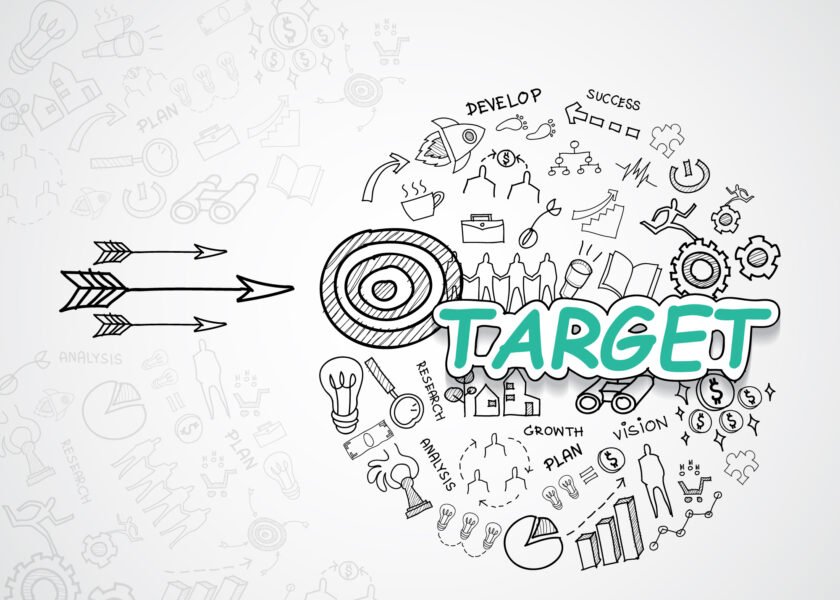Are you living or residing in a location where there is a deficit of a particular product in demand? The best business idea is to start importing such a product from an area (where you can find the product cheap and accessible)
In this case, the business model is known as the importation business. It is a lifelong business strategy that has been in existence for ages. But how does it guarantees success and maximize profits in 2023
Let’s examine this in this detailed guide, irrespective of who you are ( whether as a beginner or someone with little or vast experience)
What is Importation Business?
An Importation Business is a transaction which involves payment and the movement of goods from one place (an area where its generally accessible) to another location (an area where there is a deficit).
For example; living in a city like Johannesburg or Lagos and looking for raw materials for production purposes might be very challenging, the solution will be to look at remote areas or locations where it’s their major occupation or the source of the raw materials. In this case, the raw materials are imported from these areas into the urban areas( meaning they are exported from where they are currently found and moved into the cities)
Among major countries of the world, China is ranked the number one location with the capacity to mass produce different components from Kitchen accessories to Office products, Electronic gadgets, Fitness, health and beauty products etc
This is made possible due to the huge labour force, and governmental policies boosting small/medium businesses. If you’re looking to venture into the importation industry and achieve entrepreneurial success, you’re in the right place.

Categories of Importation Business
There are 2 categories of Importation Business, as earlier described that importation business is the movement of goods from area to area, its however categorised into 2 which are
- Small or Medium Importation
- Large Importation
Small/Medium Importation: this is the movement of goods from one area to the other in small or medium quantities (often between 100-300kg), they are lightweight products accumulated by different numbers of individuals (small businesses, students, stay at home mum, retiree etc). The movement is carried in the airport of a country(from where it’s leaving to where it’s entering) with the help of cargo aeroplanes, It has a short-term duration (3-21 days) to deliver its goods and it’s slightly expensive
Large Importation: this is the movement of goods from one area to the other in large quantities (often above 500kg to tonnes), they are always transported in containers from 20ft to 40ft. This movement of goods is carried out only via the sea harbour of a country (usually with the aid of a ship to transport these goods). People who moved goods by this method are business owners, governments association, and corporate bodies, it has a relatively long time duration (2-3 months) to deliver its goods and is relatively cheaper to use
A mix of both carriers is implemented in cases when the customers or shipping carriers choose to use it
How Useful Is Importation Business to the Economy in 2023?
In various parts of the world, the importation of goods is big business (if done properly). It has several opportunities and impacts every party involved
a. It boosts foreign exchange; this business cuts across countries (meaning there is an exchange of currency from one country to the other). For example, changing the naira to the dollar boost the foreign exchange of both countries as well as international partnerships
b. It serves as revenue generation to the various government officials (customs); this is a business that provides revenue to the government irrespective of size from import tariffs, to customs duties etc
c. It provides job opportunities: The importation business provides amazing opportunities to several classes of individuals such as logistics or freight forwarding agents, packaging services, and network providers. real estate agents etc
d. Provides Unique products distribution to customers: In areas where there is scarcity or deficit, they are given liberty to various ranges of product distribution for example, in this case, they can select colour, size, and type based on choice
e. They serve as an expansion of an existing local business: Importation whether large or small provides expansion for a local service such as hair styling, welding specialist, caterer, iron bender etc.
Whatever the field or service, Importation gives the individual the liberty to have access wide range of goods (mini, large) which if well exploited can help to expand the service being rendered. A very good example is a hairstylist who other than styling hair can also sell products used in hair styling
What do you think about the listed importance of mini importation and importation to the economy? Kindly comment below
Unveiling Secrets Involved in Running a Successful Importation Business
The secret lies in how an importation business is run, For it to be profitable and successful. You must understand importation business involves a series of sequences from start to finish, It involves the selection, procurement and distribution of goods from foreign countries to meet the demands of the local market.
However, running a successful importation business requires careful planning, market knowledge, and effective execution of a well-detailed strategy which can be broken down into
- Identify a profitable niche based on your expertise, interest/passion, market demand or the pain points you want to solve.
A definitive answer can be received when you thoroughly research and analyze the market research for comparative advantage {ways to differentiate your products from existing competitors} which can lead to untapped markets
The research carried out will help you define your potential customers (for whom this business is meant to service), Without the customers there is no business so, therefore, ensure you have your potential customers ( their age range, gender, skills attributed to this age gap, major locations you can find them)
2. Build strong relationships with reliable suppliers
Suppliers are as important as your customers, they can mess up the success of your importation business if you do not choose wisely. You must establish connections with manufacturers and distributors who can provide high-quality products at competitive prices.
For you to access trustworthy suppliers, attend trade shows, seminars, and conferences, online directories (where they have been listed either as a listing, marketplace or website. Verify supplier credentials, request samples, and perform due diligence to ensure credibility and quality. Regularly communicate with your suppliers to maintain a mutually beneficial partnership.
3. Prioritize quality control measures
The risk involved in the importation business is high, its therefore important for you to ensure that whatever you want to import meets or exceeds customer expectations.
Adequate thorough inspections (Quality checks) after the research of suppliers must be carefully done, asking questions relating to the product when you feel puzzled about one thing or the other. Employing the services of your shipping company can also ensure strict quality standards are maintained

4. Optimize your logistics operations to streamline the importation process.
An importation process does not end without the logistics operations, it’s important that as a beginner you partner with reputable freight forwarders and shipping companies to ensure timely delivery and cost-effective transportation.
In choosing an efficient logistics operator, leverage technology and automation to track shipments and manage inventory efficiently.
5. Familiarize yourself with import regulations, customs procedures, and documentation requirements.
Every country has a list of regulations and procedures implemented when goods are transported either in or out. Ensure 100% compliance with these regulations, and international trade laws to avoid delays, penalties, or legal issues.
In some cases, you are having one kind of challenge or the other. Kindly seek professional advice or consult experts if needed.
6. Optimize every cost
Every penny spent on the purchasing and movement of goods needs to be accounted for, from taxes, local shipping fees, and international shipping fees to custom clearance etc. In ensuring that this business is profitable, try and reduce every sort of irrelevant cost
Before you import any product, optimize the cost ahead and this can be done by following this checklist:
- Check out the weight of the product
- Carry out a rough calculation of the product (I mean an estimate adding the product price with the local shipping, taxes, international shipping fee, and dues incurred such as calls and transport fees to your doorstep)
- Compare and contrast with the normal amount the product is been sold for in your country
- Evaluate how much profit margin, you will make with the deduction from the normal market price and your estimate
- In cases, the product is scarce, a 50-100% profit margin can be added to the costs to break even, other forms of costs that could be regarded are costs involved in the marketing of goods, product packaging, advertisement fees, governmental association fees (such as NAFDAC or FDA fees on health, beauty related products)
7. Marketing the Imported Products
Products imported are meant to be sold one way or the other which can be made possible through effective marketing strategies from building an online presence through a website and social media channels, leveraging influencer collaborations, and optimizing search engine visibility.
In order to market a product profitably, here are some areas to follow in order to tailor marketing efforts to specific customer segments (not everyone will need your product equally).
a. Website/Online marketplaces: As a newbie or business owner just growing, marketplaces are important communities for you to belong to. They are a mirror of the traditional market squares we have in the villages, This online marketplace exists in various media
Reputable ecommerce stores: these are communities which are well developed with regular traffic of individuals visiting on a day-to-day basis. Examples are Amazon, ebay, Jumia, Konga etc. They vary from country to country (the Amazon website for India is different from that of the United Kingdom)
The advantages are these platforms invest heavily in advertisement monthly, and they are reputable (meaning people from the far end of the country know this platform very well) with a track record of results. It’s very easy and cheap, to begin with
Disadvantages are these platforms have very high competition and it is very tough to build a brand with this method because when you are packaging your product. They come with the platform shipping bags and stickers
New ecommerce stores: if you want to build a name for yourself, creating a store from scratch is the way to go but this demands a well-structured and perseverance from the business owner. In this case, you spend money on building the store, marketing and advertising the products. This store can enter into partnerships with logistics, and payment organisations for easy optimization
There are several easy-to-use platforms which help to build a website or marketplace for you in no time, example are Wix, Shopify, woo commerce, big commerce etc
The advantages are you own the right to do whatever you want with this marketplace, they yield profits in the long-term (as you can sell for good turnover)
The disadvantages are this platform is expensive to run (you need to budget and spend money on advertisement, marketing, and recruitment of freelancers or staff to work with you on this marketplace)
b.) Social media: this is slightly different from websites, online marketplaces or ecommerce stores, they are platforms where customers engage and interact with brands and businesses. In the case of the importation business, It’s important you understand the social media platform that works best for you
From Facebook to Twitter, Instagram, Pinterest, LinkedIn, Tiktok Youtube etc. At the earlier stage of starting an importation business, it’s important that you stick to just 2 of these platforms before expanding to other social media
In conclusion, the importation business presents lucrative opportunities for entrepreneurs seeking to tap into global markets. By unveiling the secrets discussed in this guide, you can establish a solid foundation for your importation business and increase your chances of success.
However know that the capital required to start an importation business varies depending on factors such as the type of products, volume, and target market. It’s essential to conduct a thorough business plan and financial analysis to determine the initial investment required.
If you have any doubts or questions considering starting or scaling your importation business. Kindly feel free to leave a comment and if you have been blessed with this post, comment with your favourite tip





